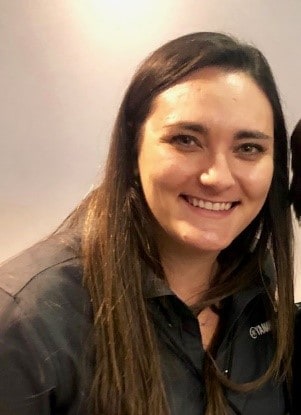Tennessee’s Strong MLTSS Program
THE VBP Blog

Tennessee has built a strong structure for their Medicaid-managed long-term services and supports (MLTSS) community with a program they launched in 2010 called CHOICES. Their program has been revered for its flexibility, high quality, and consumer-first approach.
Tennessee MLTSS History
In 1994, TennCare was launched as Tennessee’s Medicaid Program. TennCare took an incremental approach to managed care, giving them time to understand the needs of their consumers. In 2010, they launched the CHOICES program for the Long Term Services and Supports (LTSS) community to provide help in a facility or in-home and community-based services (HCBS).
They then explored managed care by holding stakeholder meetings to learn the needs of their members. Some goals came out of those meetings such as reduced waiting lists, supports for crises, more choices for community options, and employment support. Based on that feedback, Tennessee created the Employment and Community First (ECF) Choices MLTSS Program. With that rollout, they allowed the current MLTSS Beneficiaries to stay on the current HCBS waiver while allowing those on the waiting list and anyone new to try the new ECF Choices option. The four managed care organizations (MCO’s) are Amerigroup, BlueCare, UnitedHealthcare, and TennCare Select.
CHOICES Success
Since the CHOICES program was launched in 2010, fewer people are served in nursing homes each year. 9,000 more have access to in-home care. And the waiting list for in-home care has been eliminated for older adults and adults with physical disabilities.
The stakeholders continue to be very active with a number of state advocacy organizations collaborating in presenting the community needs. We have had the privilege of observing this collaboration in our work with the Tennessee Community Organizations (TNCO).
As of April 2021, there is 53.4% of LTSS members receiving facility-based services and 46.7% in HCBS services. That is a dramatic decrease from 2009 before the CHOICES program started where 84% were in facility services and 16% in HCBS services.
The state retains a significant role in the approval of person centered service plans, resulting in fewer gyrations. The growth of the state’s population and budget has allowed it to keep up with the needs of its MLTSS budgets…. But it is never enough!
Employment and Community First (ECF) Choices has also seen success with over 500 employers committed to employing those enrolled in the program and over 90% of those involved in the program focused on finding employment. Additionally, the annual cost of HCBS is less than half of the average of previous programs.
Tennessee's MLTSS VBP Effort
In 2014, TennCare launched Quality Improvement in Long Term Services and Supports (QuILTSS) to promote the delivery of high-quality LTSS. Their mission is to build a more competent Direct Service Provider (DSP) workforce to handle the complex challenges of LTSS Care. The MCO UnitedHealthcare (UHC) partners with this program to offer money and support. According to the UHC site, “Two unique features of the QuILTSS program are that it will be offered through local colleges and provide credit toward associates or bachelor degrees in fields such as nursing, health care administration, or other related disciplines; and that the program requires DSPs to demonstrate the expected knowledge, skills and abilities, and intellectual behaviors before earning their credential.”
Tennessee continues to have success with its CHOICES program due to its methodical approach to how it was launched. They listened and built programs based on what their consumers need. In turn, they were able to create a program that improves the quality of care while also saving money.
Advocate’s Perspective
Tennessee had the advantage of launching its managed care programs with a relatively clean slate, a well as having a smaller population, the legislature and administrations moved forward methodically and incrementally, engaged stakeholders throughout the process. The stability of the MCO’s has also provided significant opportunities for program improvements and Value-Based Payments (VBP). As advocates, Bravo Tennessee!
Onward!
Share This Blog!
Get even more insights on Linkedin & Twitter

About the Author
Fady Sahhar brings over 30 years of senior management experience working with major multinational companies including Sara Lee, Mobil Oil, Tenneco Packaging, Pactiv, Progressive Insurance, Transitions Optical, PPG Industries and Essilor (France).
His corporate responsibilities included new product development, strategic planning, marketing management, and global sales. He has developed a number of global communications networks, launched products in over 45 countries, and managed a number of branded patented products.

About the Co-Author
Mandy Sahhar provides experience in digital marketing, event management, and business development. Her background has allowed her to get in on the ground floor of marketing efforts including website design, content marketing, and trade show planning. Through her modern approach, she focuses on bringing businesses into the new digital age of marketing through unique approaches and focused content creation. With a passion for communications, she can bring a fresh perspective to an ever-changing industry. Mandy has an MBA with a marketing concentration from Canisius College.
